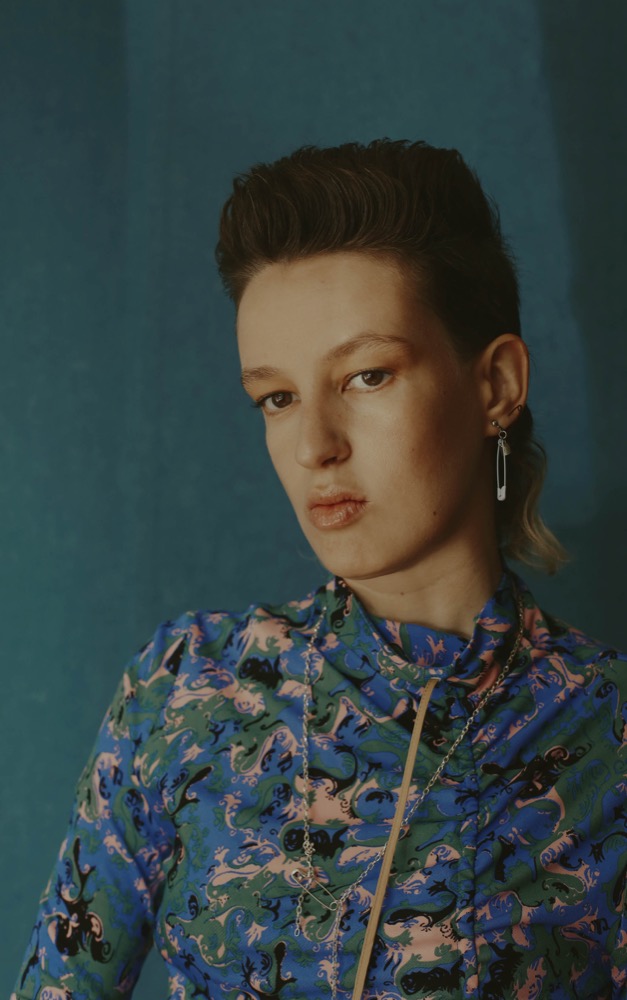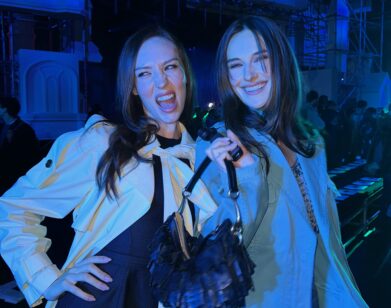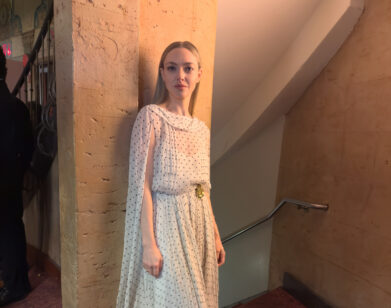Dora Diamant is the most exciting DJ in French nightlife
It’s 8 p.m. in Paris’s 11th arrondissement. Dora Diamant is waiting for me in a random bar-tabac—the only place of its kind in the city where you can buy cigarettes and a drink. Right now, Diamant is the most exciting DJ in French nightlife. She became notorious in 2010 for her parties at Les Souffleurs, a gay dive bar in le Marais, where her wild music and style still brings kids out from all over town. For them, she symbolizes the rebirth of “la nuit parisienne.”
And yet, the 30-year-old night owl is more than an entertainer; she’s also an emerging photographer who captures the energy of the local art scene, and she often appears as a model for her friends in fashion magazines. Diamant’s main ambition is to defy categorization. “I don’t pretend to be an artist,” she says. “It’s square, and I don’t like definitions or borders.” To pay the bills, she’s been a waitress, a translator, and, for a brief period in London, a receptionist at a Turkish community center where she was paid in kebabs. Diamant grew up in the Paris suburbs, with a mother who collected vinyl records and a father who collected books. (She was named after Franz Kafka’s last lover.) Both of those passions were passed on to her at a young age. As a teenager, she developed her own obsessions: vintage clothes, comic books, and The Lord of the Rings, among them. She credits those interests for the persona she created when she first arrived in Paris to conquer the underground scene.
Her style continues to be a mash-up of the weird and the new. (One recent night, she was found wearing green Dr. Martens and a short red nightgown under a blue trench coat.) “In Paris, people look at my style with angry eyes,” she says. “There’s a violence that you can smell on the streets and at political events—the far right won 30 percent of the last presidential election. They are homophobic and racist—everything that I fight against.”
Lately, Diamant has been turning her style and political rebellion into material for a number of small magazines, art shows, and performances. In May, she choreographed a performance by the artist Charlie le Mindu at the Centre Pompidou. Next up, she’s playing the role of Edwige Belmore, the mythical punk égérie of Paris’s ’80s nightlife scene, in the director Eva Ionesco’s film about the Palace years.
It’s 10 p.m. now at the bar-tabac. Dora says she has even more projects in the works, but she doesn’t have time to talk about them. She has to run to a gig at a secret party in a squat across town. Watching her escape into the night, she looks like a Dadaist muse, and perhaps the only real way to get at her essence is with a quote by Nietzsche: “One must still have chaos in oneself to be able to give birth to a dancing star.”







